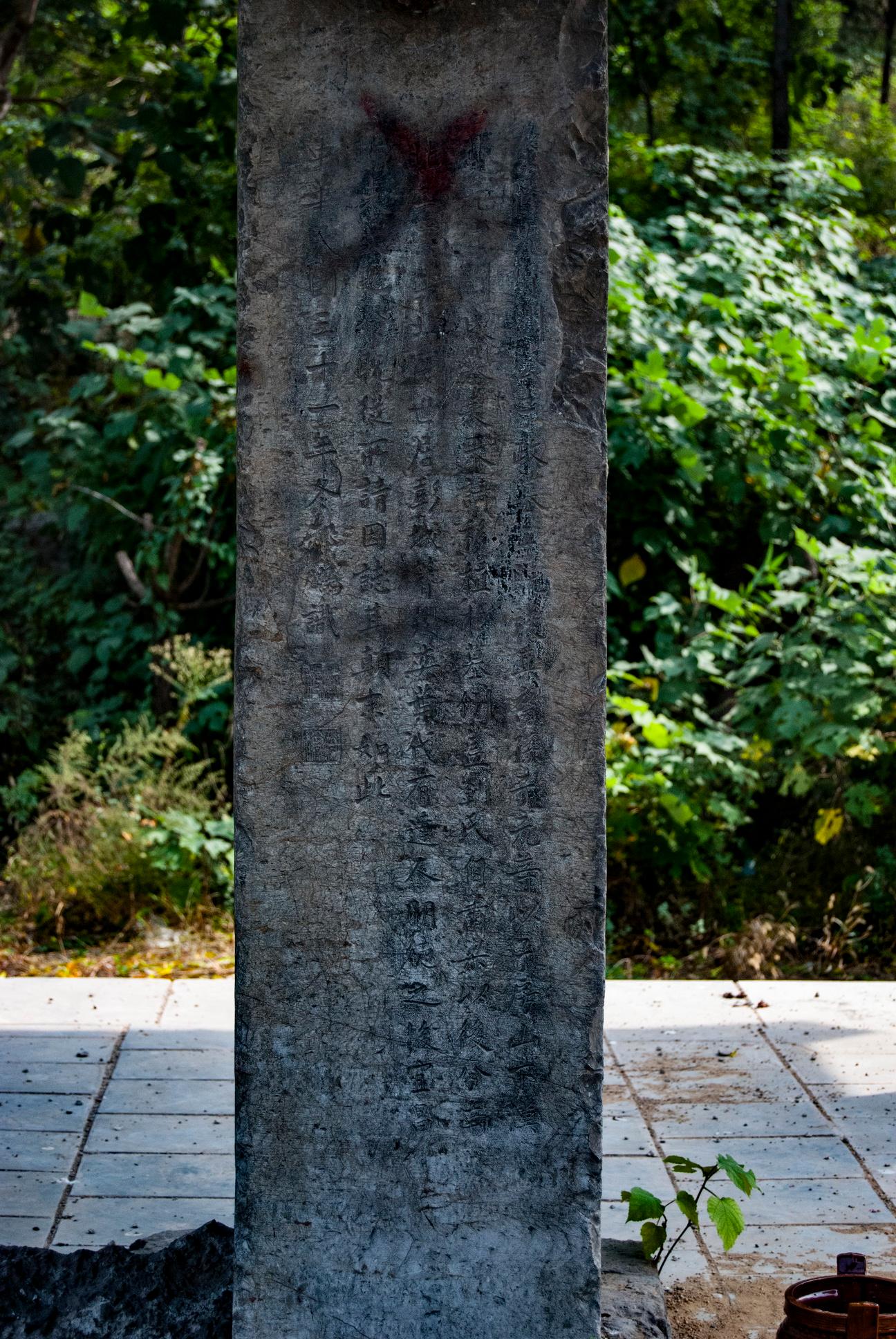An documentary scientist who collate ancient books and establish bibliography
Overview
Chinese Name: 刘向
English Name: Liu Xiang
Other Names: Liu Gengsheng 刘更生, Liu Zhonglei 刘中垒
Born: 77 B.C.
Died: 6 B.C.
Achievements:
The Ancestor of Bibliography 目录学鼻祖
Imperial Clan of Western Han Dynasty 西汉宗室
Main Works:
The New Preface 《新序》
Shuoyuan 《说苑》
Biographies of Women 《列女传》
Warring States Policies 《战国策》

Brief Biography of Liu Xiang
Liu Xiang is a royal family minister, a litterateur of the Han Dynasty, the grandson of Liu Jiao 刘交, King Chuyuan, the son of Liu De 刘德, Marquis of Yangcheng, the father of Liu Xin 刘歆, a Confucian classics scholar, and the founder of Chinese bibliography.
Liu Xiang (77 B.C. – 6 B.C.), formerly known as Liu Gengsheng 刘更生, courtesy name Zizheng 子政, was born in Fengyi 丰邑, Peijun 沛郡 (now Xuzhou City 徐州市, Jiangsu Province 江苏省).
He inherited his family’s position and began as a Nianlang 辇郎. During the reign of Emperor Xuan of the Han Dynasty, he became Jian Dafu and Geishizhong 给事中. Emperor Yuan of the Han Dynasty ascended the throne and granted Zong Zhengqing the title. Opposing eunuchs Hong Gong 弘恭 and Shi Xian 石显, he committed crimes and went to prison. After Emperor Cheng of the Han Dynasty ascended the throne, he became a Guanglu doctor and was renamed “Xiang 向”. The officer went to the Zhonglei captain, known as Liu Zhonglei 刘中磊. In the first year of Jianping, he died at the age of 72.

The “Bie Lu 别录”, written by Liu Xiang, is the earliest public catalog of books in China. The New Preface 《新序》, Shuoyuan 《说苑》, Biographies of Women 《列女传》, Warring States Policies 《战国策》, and Five Classics Tongyi 《五经通义》 are preserved today. Compile the Songs of Chu 《楚辞》, and jointly compile the Classic of Mountains and Seas 《山海经》 with his son Liu Xin 刘歆. The prose is mainly the “narration” of memorizing and collating ancient books. The more famous ones are “Jianying Changling Shushu” 《谏营昌陵疏》 and “Warring States Policy · Narration” 《战国策·叙录》. The main characteristics of prose are simple narration, smooth theory, ease, and easiness. The works are included in “Liu Zi Zheng Ji”.
Personal Life and Major Contributions
Warring States Policy 战国策
The Warring States Policy is an important historical work compiled by people in the late Warring States and Qin and Han Dynasties, as well as an important collection of essays. At first, it was named “National Policy 《国策》”, “National Affairs 《国事》”, “Short and Long 《短长》”, “Shiyu 《事语》”, “Long Book 《长书》”, “Xiushu 《修书》”, etc. After Liu Xiang’s sorting and editing in the Western Han Dynasty 西汉, it was named “Warring States Policy”.

The book consists of 33 chapters, edited by different countries. In order: one in the Western Zhou Dynasty, one in the Eastern Zhou Dynasty, five in Qin Dynasty, six in Qi Dynasty, four in Chu Dynasty, four in Zhao Dynasty, four in Wei Dynasty, three in Han Dynasty, three in Yan Dynasty, one in Song Dynasty and Wei Dynasty, and one in Zhongshan. The recorded historical facts lasted 245 years from the 17th year of Emperor Zhending in the Eastern Zhou Dynasty (452 BC) to the 31st year of Emperor Qinshihuang (216 BC).
Advocate Confucian classics
Liu Xiang and Liu Xin were important figures who re-studied and reorganized the works and theories of various schools of thought and emphasized to absorb ideological nutrition from them to improve Confucianism after Confucianism was unified as a Confucian classics.
On the basis of the systematic arrangement of such works as Guan Zi 《管子》, Yan Zi 《晏子》, Han Feizi 《韩非子》, Liezi 《列子》, Deng Xi 《邓析》, Guan Yinzi 《关尹子》, Zi Huazi 《子华子》 and the Warring States Policy 《战国策》, it is believed that they all conform to the Confucian classics.

Liu Xiang and Liu Xin strongly advocated the study of Confucian classics under the condition that Confucian classics were exclusive at that time, which was of positive significance for weakening the rule of official academic thought and emancipating the mind.
Bie Lu 别录
Bielu is China’s first comprehensive catalog book with a title and problem solving. It has 20 volumes. During the reign of Emperor Cheng of the Han Dynasty, Liu Xiang was instructed to take part in the collation of the books collected by the imperial court. After the collation, he wrote a concise summary of the contents, which was later compiled into Bielu. There are 603 books, totaling 132019 volumes, which are divided into six categories and 38 kinds. Each category has a category preface before it and a section preface after it.

The content of the description includes: the title of the bibliography, the collation process, the author’s life thoughts, the meaning of the title, the origin of the book, the nature of the book, the review ideas, historical facts, right and wrong, and the analysis of the academic origin and value of the book. Statistics are available before the preface and after the category, and there is a total at the end of the book. Liu Xin, his son, cut down the complexity and simplified the preface and compiled Qilue 《七略》. Bie Lu has been lost in the Tang Dynasty 唐朝. Its outline can be seen from Han Shu Yi Wen Zhi 《汉书·艺文志》.